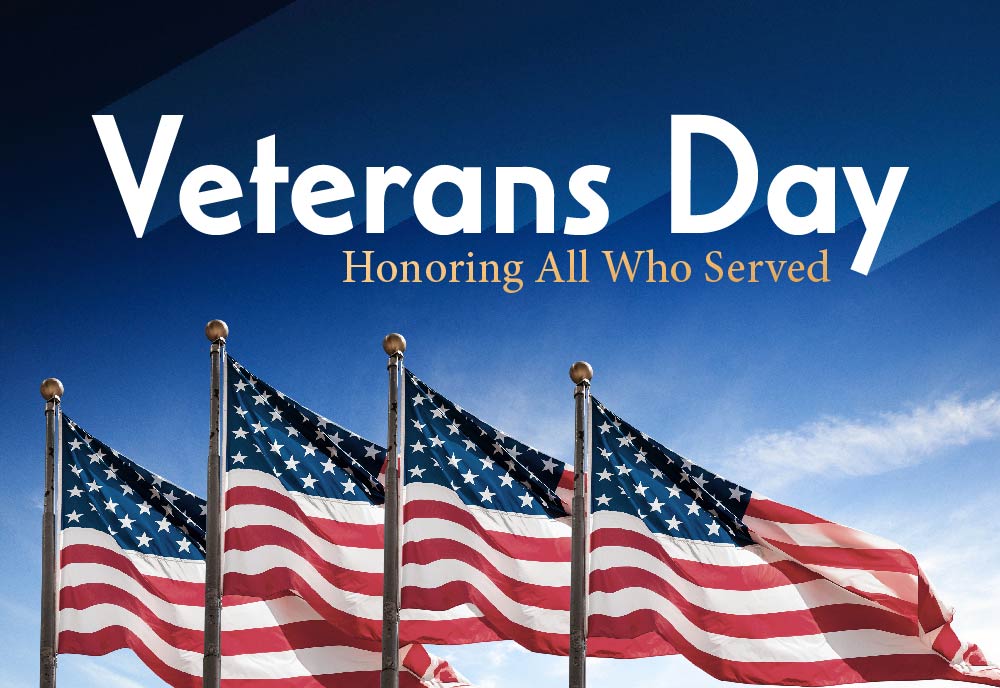This Veterans Day, as we pause to pay tribute to the men and women who bear the burden of safeguarding our freedom, we must ensure that our gratitude is extended to all veterans, including those who struggle to cope right here at home. Georgia is home to more than 700,000 veterans. Many of these men and women are strengthened by their service and are vital members of our communities. But we also know that some have difficulty adjusting. It is estimated that one in five post-9/11 veterans struggle with post-traumatic stress disorder or major depression, and one in six has a substance use disorder. In 2014, the Veterans Health Administration reported that 20 percent of suicide deaths in the U.S. occur by veterans, and approximately 22 veterans die by suicide every day. These numbers are both alarming and tragic.
As your Commissioner, I would first like to acknowledge the veterans who serve on the DBHDD team and in our provider network, including our Medical Director, Dr. Emile Risby, who retired after 31 years of service as a Colonel in the U.S. Army Reserves Medical Corps. We are so proud of our veteran service members. Second, I am pleased to share some of the work that has occurred over the last ten years to help provide Georgia’s service members, veterans, and their families with the support they need and deserve to begin their process of recovery.
In 2008, DBHDD spearheaded the Georgia Operation Enduring Freedom/Operation Iraqi Freedom Veterans State Action Plan. This brought vital stakeholders within the Armed Forces, treatment providers, and suicide prevention and recovery communities together to address the behavioral health needs of Georgia veterans. That same year, Georgia was one of six states to receive SAMHSA funding for a grant entitled “Jail Diversion and Trauma Recovery – Priority to Veterans.” Through this work, DBHDD implemented jail diversion programs for veterans with post-traumatic stress disorder and other trauma-related disorders. This pivotal work was instrumental to the now 13 Veteran Treatment Courts throughout the state. These are specialty courts created specifically for veterans who struggle with behavioral health challenges and are involved in the criminal justice system. We collaborated with various other criminal justice agencies to ensure that professionals around the state received invaluable training on the unique needs and challenges of this population.
In 2012, we partnered with the Georgia Army National Guard and scaled the STAR Behavioral Health Program to train approximately 1,800 providers throughout the state to specialize in understanding and treating military service members and their families. We continued our work with the Georgia Army National Guard and developed the Substance Abuse Treatment Initiative (SATI). SATI provided a continuum of substance abuse services which included prevention, assessment, counseling, and other treatment services to soldiers who needed assistance during challenging times. As the state behavioral health authority, we continue to lend our expertise as part of the Georgia Department of Veterans Service’s Returning Veterans Task Force and countless other statewide initiatives focusing on veterans in the criminal justice system and trauma-informed care for veterans.
I am proud of DBHDD and our providers for the work done in the past, present, and future to support our service members, veterans, and their families. As we prepare to host the 2019 Unspoken Wounds Conference: One Team. One Battle. Many Victories!, the focus will be on evidence-based practices and innovative strategies to continue our work serving the needs of this population. This conference is scheduled for March 17-19, 2019, in Columbus. This powerful three-day event brings together hundreds of stakeholders from the public and private sectors to share their expertise and their experiences working with service members, veterans, and their families. Check our website in the coming months for additional details.
To the many veterans and service members across Georgia, I offer my humble gratitude for your sacrifices and contributions to our nation. On this and every day, we support you.
Sincerely,
Judy Fitzgerald
Reminder:
Help for all Georgians is just a call away through the Georgia Crisis and Access Line (GCAL) at 1 (800) 715-4225.
